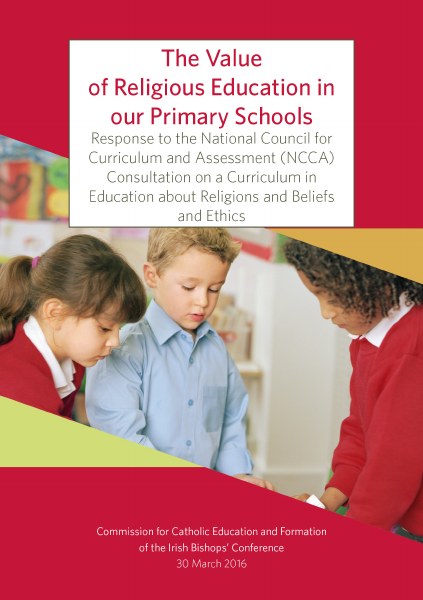The Value of Religious Education in our Primary Schools
Extent: Paperback
Publisher: Veritas Publications
Click and Collect - Free
Click & Collect is available across Ireland and Northern Ireland in our Veritas stores. We will contact you when your item(s) are ready for collection. Please visit your branch after you receive contact from us that your items are available to collect. The order will be ready for you within 2-5 working days, subject to opening hours, order volumes, if the item is in stock and time order is placed.
Standard Express Delivery
Complimentary shipping within Ireland & Northern of Ireland is available on orders over €100, delivery fees will be added according to the area of delivery, as described below:
| Country Zone | Under €100 | Over €100 | TimeFrame |
|---|---|---|---|
| Ireland | €6.50 | Free! | 3-7 working days |
| Northern Ireland | €6.50 | Free! | 3-7 working days |
| Country Zone | Under €50 | Over €50 | TimeFrame | UK | €12.00 | €15.00 | 3-7 working days |
|---|---|---|---|
| Europe | €17.00 | €25.00 | 3-7 working days |
| USA & Canada | €35.00 | €50.00 | 7-14 working days |
| Rest of the World | €55.00 | €55.00 | 7-21 working days |
| **Trade Customers** | |||
|---|---|---|---|
| Country Zone | Under €500 | Above €500 | TimeFrame |
| Ireland | €6.50 | Free! | 3-7 working days |
| Northern Ireland | €6.50 | Free! | 3-7 working days |
| UK | €12.00 | Free! | 3-7 working days |
Please Note:
• Click and collect orders are "free" as there is no shipping involved.
• If the order after discount is applied is below €100 or €500 (trade orders), shipping will be charged.
• EUA, Canada and Rest of the World shipping charges are for parcels with maximum weight of 2kg.
• These time frames are a guide and shipping times may vary, especially at busy periods.
• Please allow a few days leeway for personalised products or pre-orders.
• We are aware of some shipping delays throughout Europe and the USA caused by unforcing circusntances or territorial border control restrictions. This is out of our control. Please allow a few days leeway for your delivery.
• Subject to placing your order before 12:30pm. Does not apply to pre-ordered items.
• Check on our Delivery Policy page, the delivery areas. We do not deliver to Channel Islands or the Isle of Man.
Description
Because of this tradition, Catholic Religious Education, particularly since the Second Vatican Council, is committed to teaching and learning about and from other religions, not as an option but as something intrinsic to the definition of Christian identity.
Catholic schools are as inclusive as any other type of school. The ‘on the ground’ experience across the country of Catholic schools as inclusive is borne out by the Economic and Social Research Institute
publication, School Sector Variation among Primary Schools in Ireland (2012). In this study, it was found that there were no significant differences in pupils’ perspectives on their school experience across the three sectors (Catholic, Multi-denominational and Minority Faith) surveyed. The research found that most children across the
three sectors liked their school and their teachers and reportedn doing well in their schoolwork. Worth noting is that pupils who were particularly positive about the school and teachers came from a wide variety of different backgrounds.
Faith schools exist because there are parents who wish to have their children educated in accordance with their religious convictions.
Catholic primary schools are embedded in parishes and local communities throughout the country. All surveys demonstrate a
very high level of parental satisfaction with the service provided by these schools. Some recent comments caricature the real
contribution of faith schools to Irish life.
8 Inspired by Christian faith and love, Catholic schools strive to be caring and inclusive communities. They have adapted to demographic change with significant net migration into Ireland and many of them have led the way in integrating migrants into
local communities. They have been leaders in areas such as social inclusion, special needs and Traveller education.
Every school has a particular ethos or characteristic spirit. The ethos of a school is given expression in multiple ways and it informs all aspects of the life of the school. These include the understanding
of the human person. This anthropological question is central: what vision of the human person underpins educational endeavours?
Children today inhabit a world in which they are bombarded
with messages dominated by a consumer and material vision.
Catholic schools seek to provide space, both intellectual and
emotional, where pupils can explore and imagine a world with a
spiritual horizon. This points to the possibility, the invitation, of understanding the human person in solidarity with other people, especially those most in need, being responsible for the world in which we live and open to a relationship with God.

